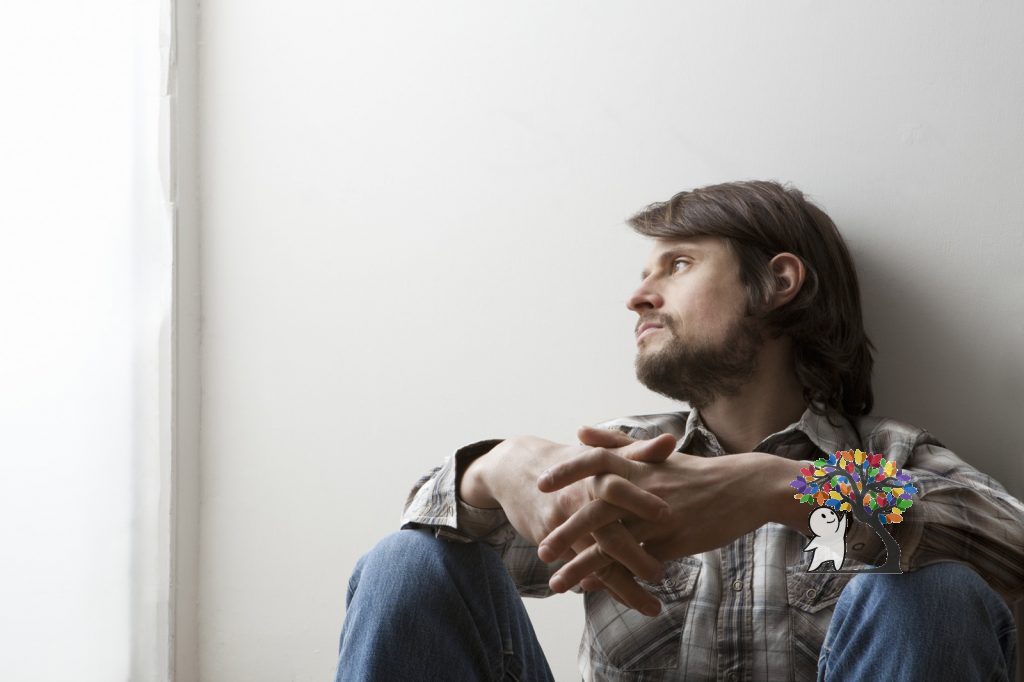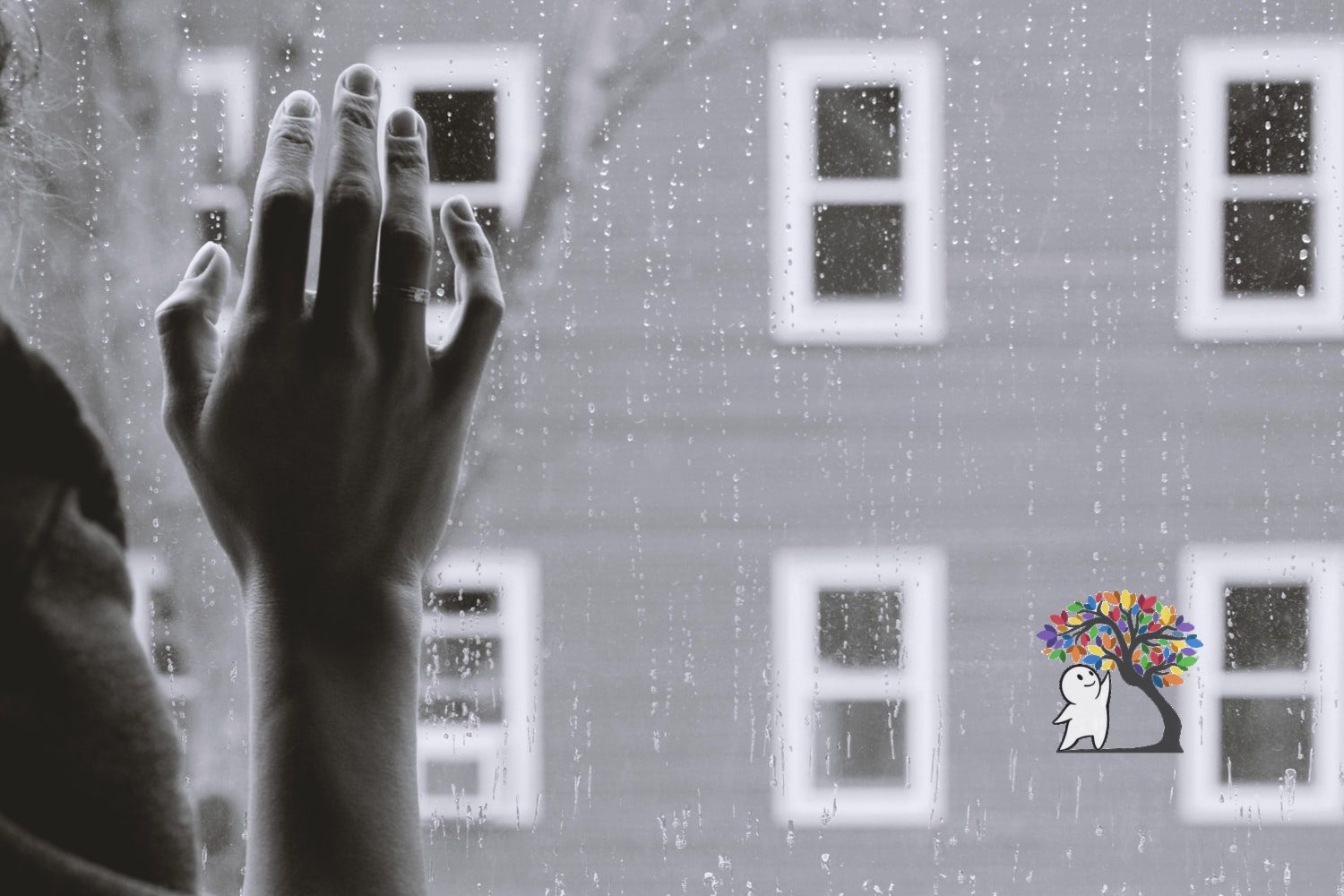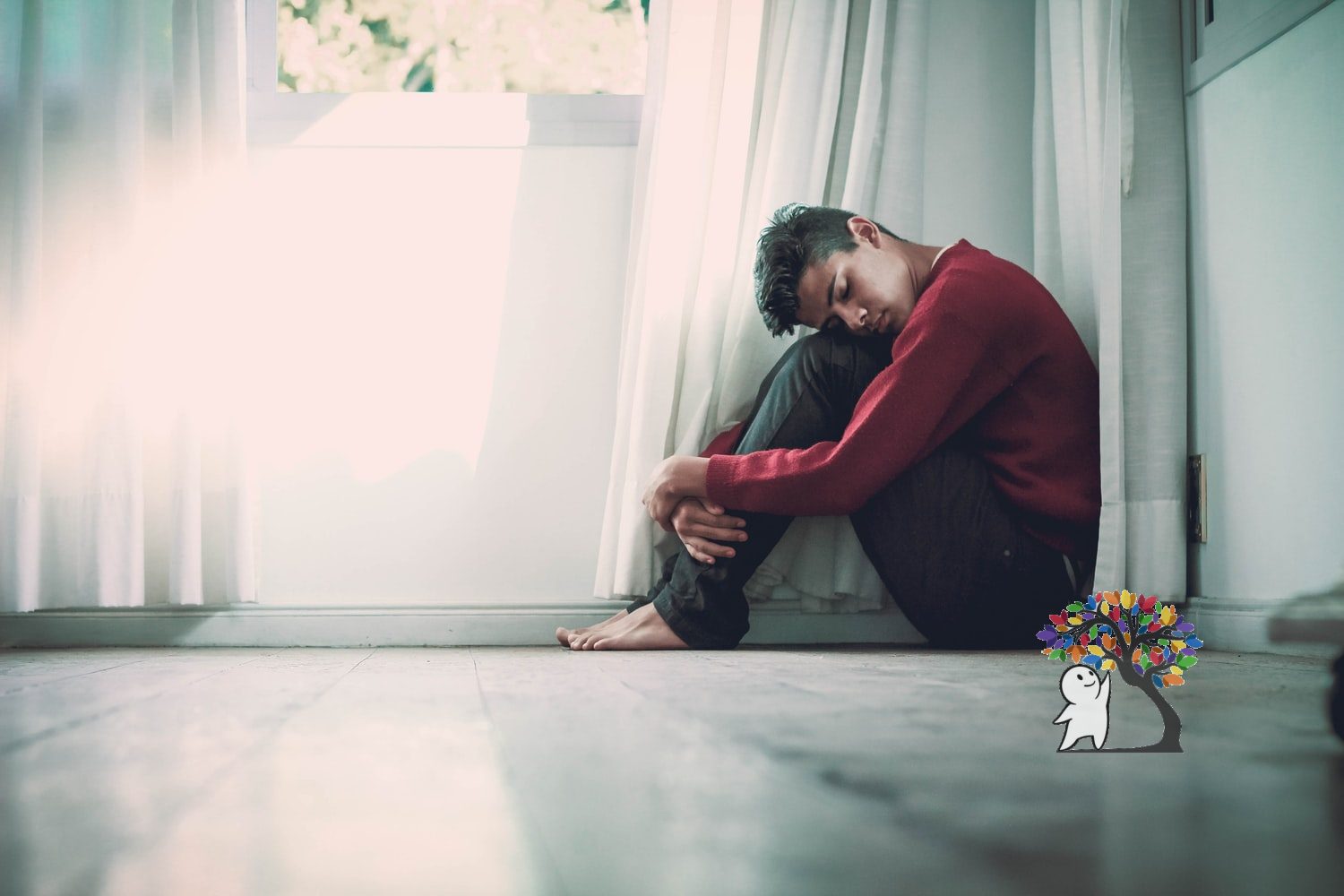5 Signs it’s Social Anxiety and not Introversion

If you’re an introverted person, the chances are you prefer your own company to that of crowds and consider yourself a quiet and reserved person. There’s absolutely nothing wrong with being an introvert, but it is important to know the differences between introversion and social anxiety, as the two can easily become intertwined and mistaken for one another.
So what is social anxiety, how can you spot it and what should you do if you need help dealing with it?
Social anxiety is described as the fear of social situations that involve interacting with other people, it can manifest itself in numerous ways and can include everything from shyness in social situations, dreading everyday activities and performing tasks in front of other people to even having physical effects on a person like panic attacks, feeling sick, sweating or heart palpitations.
There are a variety of different things that can trigger and cause social anxiety, a few of which being an early traumatic event in life, an isolated upbringing or your brain structure and genetics.
Let’s compare all of that to someone who is simply introverted. An introvert is someone who is primarily focused on ones own mental self. Introverts are usually perceived as being more “inwards” focused and tend to favour time spent in solitary, finding time spent alone more rewarding than time spent with others. This is not to say that introverts are against socialising, they are just usually more particular about who and what they spend their time on.
Considering the above examples, social anxiety can be much more damaging to your physical and psychological well being than simply being an introvert, demonstrating the importance of being able to know the difference and whether or not what you’re struggling with is simply an introverted personality or social anxiety. The points below will examine five different scenarios from the point of an introvert and someone who is struggling with social anxiety.
1.You’re turning down invitations to social events because the thought of it scares you, not because you’d rather be at home

I’ve always been an introverted person but I have always had a good circle of friends who see each other regularly and that’s something that has always been important to me, but in recent years I’ve found myself turning down invitations for nights out, weekends away and holidays more and more often. In the past this could always be attributed to you favouring your own time and space and choosing to stay in to do your own thing but nowadays the real reason you’re turning these offers down is because the thought of being out and about makes you feel uneasy. It might be that you don’t like being out in social situations anymore because you’re constantly worrying about how others are perceiving you and how you’re coming across to any new people who don’t know you and might think you’re “weird” because they “don’t get you” and “won’t stop talking about Naruto” With social anxiety also comes a feeling of dread when things aren’t in your control – what time will this finish? Where are we going from here? What is everybody doing next? Will you be expected to join in? Are you going to become part of some sort of never-ending pub crawl? But you can’t make these concerns known because to most people these worries would seem totally ridiculous.
2. You’re not enjoying the introverted activities that you used to enjoy anymore

As an introvert my favourite hobbies have always been things I can do by myself in the comfort of my own home and I’ve always used these activities as a sort of “recharge” A big indicator that you are struggling with social anxiety is when these activities stop being enjoyable and start making you feel guilty above all else. For me it’s always been video games and reading but for you it could be binge watching on Netflix. In the past you could spend hours (days) at a time indulging in these things but when you’re struggling with anxiety it can sometimes only be a few minutes before you can feel the back of your mind clouding and telling you you’re using these activities as more of a distraction for the fact that you’re not engaging in meaningful activities or dealing with your anxiety appropriately.
3. You’re not going out and doing necessary things anymore

Although it’s in the name, “social” anxiety doesn’t entirely revolve around socialising. It can also hinder your ability to engage in everyday (and necessary) activities in the outside world. One sign of social anxiety over introversion is the fear of partaking in things such as: shopping, going out to the gym or working. This isn’t caused by somebody wishing to keep themselves to themselves like an introvert would, it’s the social anxiety causing distress and making a person want to withdraw from the limelight and stay away from the possible interactions that come with these everyday tasks. Over time it is obvious how avoiding these tasks will become a problem for somebody and pile onto their anxieties and make dealing with it much harder.
4. You don’t enjoy the social activities that you used to

I always used to enjoy getting together with my group of friends. We’d see each other between two and four times a week and I’d love it. We’d go to the absolute worst club in town and drink, dance and sing all night. Nowadays the thought of that couldn’t be more unappealing as I’d constantly be worried about what the guy in the trench coat who doesn’t know me and will never see me again thinks of my singing voice. I’d love these nights even more because after being out for the night I’d feel like I’d “earned” my down time when I got home. When you’re suffering from social anxiety even the things that you used to enjoy can become daunting and make you feel overwhelmed. One major downside of this is that it is easy to start engaging in unhealthy behaviours to help you enjoy these things again (for example drinking more than you usually would to enjoy a night out) but these are simple distractions and coping techniques to avoid dealing with your problems head on.
5. You don’t maintain relationships as well as you used to

Even though I’ve never been the most social/outgoing person I’ve always been part of a tight knit group of friends. Even with my introverted behaviours I’ve never really struggled to keep these relationships strong. When somebody is struggling with social anxiety however this can become a sometimes-overwhelming task. You’ve left friends on read for days for fear of conversations taking unwanted turns, you leave messages unread and avoided answering the phone to your best friends or employer for no reason other than the possibility of “what if this conversation is about something that I’m not 100% prepared to deal with right now” which you then look back on days later and laugh about when you open the most mundane and reasonable text ever written.
Hopefully these examples will help you to differentiate between social anxiety and introversion and allow you to make the first steps towards dealing with any problems you may have. Everybody is different and as such no one thing will help resolve everybody’s issues every time. The best thing I can recommend if you think you are struggling with social anxiety is to speak to your GP about how best to treat it, this could be through medication, Cognitive Behavioural Therapy or social anxiety therapy.



Really good information.
Thank you, Alex. I appreciate the feedback
Can I register with your website and get my code so that I don’t have to constantly go through moderation.
Very interesting thanks Sean!
Thanks Jake!
Actually its relatable to me. I was assuming to be introvert but i realized i was socially anctious. Thanks for your article.
You’re welcome, I hope this has helped in some way
What If an introvert has social anxiety?
Anyway, great and helpful article.
Actually this is mine problem also.
Please tell me if you know about it
I’d say always see a gp or ring “let’s talk” to try and get the most appropriate treatment
That’s really interesting !
Thank you!
Interesting!, Introversion can actually lead to social anxiety
Yes I think that’s definitely what happened to me, I spent so long not socialising and going out that I lost all confidence and ended up being totally out of my depth in those situations which lead to being anxious and eventually to a constant anxiety in those situations
Wow I didn’t need to be attacked oof
☹️
Really bang on. Thank you.
Thank you, Barry!
No. No it doesn’t. Social Anxiety doesn’t have anything to do with being an introvert or extrovert. It’s a disorder, not a personality trait.
Hi, that’s the point of the article, to help people stop confusing the two and get treatment for a disorder as opposed to thinking it’s just part of their personality
What if I’m an introvert that really badly wants to be positively stimulated? I try to set things like this up to happen, but I can’t really find someone who is willing to follow along.
Its surprising how accurate it was and each one of it made sense. Now I know for sure that I have social anxiety …
Thank you. Not a great thing to know but st least now you can start trying to treat the issues!
No, this doesn’t make sense to me, sorry. But thanks for the article anyway.
How do you mean?
I m an introverted person